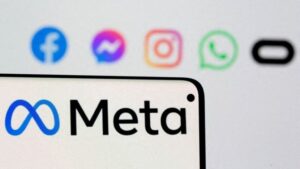Why Mark Zuckerberg considered ‘deleting’ everyone’s Facebook friend list
In a startling revelation from internal emails presented during an ongoing antitrust trial, Meta CEO Mark Zuckerberg’s radical suggestion to “wipe everyone’s graphs” on Facebook has resurfaced, drawing attention to the extreme lengths leadership once considered to reinvigorate the platform’s relevance. The proposal, which involved erasing every user’s friend list to force a social re-engagement reset, offers a rare glimpse into the executive-level desperation to maintain Facebook’s user interest in an era increasingly dominated by competitors like Instagram, TikTok, and Snapchat.
Although the idea was ultimately dismissed, the now-public emails have fueled renewed scrutiny of Facebook’s growth tactics and its dependence on legacy social structures—especially as Meta continues facing legal and reputational challenges around monopolistic behavior. Here’s a detailed breakdown of the origin, implications, and fallout of this eyebrow-raising strategy.
Zuckerberg once suggested deleting everyone’s Facebook friends to reignite engagement
The revelation stems from internal communications dated 2022, disclosed during the Federal Trade Commission’s ongoing antitrust case against Meta. In an email sent to senior executives, Mark Zuckerberg proposed what he described himself as a “potentially crazy idea” under the header “Option 1. Double down on Friending.”
“One potentially crazy idea is to consider wiping everyone’s graphs and having them start again,” Zuckerberg wrote, referring to the core social connections—“friend graphs”—that form the backbone of Facebook’s architecture.
The idea centered around reigniting engagement by forcing users to reconnect from scratch, potentially making the platform feel more like a fresh social discovery network rather than a stagnant feed of old acquaintances.
Concerns over platform stability and Instagram
The proposal was met with immediate concern by top executives within Meta. Tom Alison, then head of Facebook, pushed back strongly on the idea. He warned that disrupting the established friend graph could create significant instability not just for Facebook but also for its sister platform, Instagram, which relies heavily on user connections for feed curation, story sharing, and algorithmic recommendations.
“I’m not sure Option #1 in your proposal (Double-down on Friending) would be viable given my understanding of how vital the friend use case is to IG,” Alison wrote in response.
This internal debate reflected a broader tension within Meta: how to evolve Facebook’s aging infrastructure without compromising the integrated social ecosystem that now spans Facebook, Instagram, and WhatsApp.
Why Facebook was looking for drastic fixes
The context behind Zuckerberg’s controversial suggestion lies in Facebook’s waning cultural relevance. Founded in 2004, Facebook once dominated online social interactions. But as platforms like Instagram (acquired by Facebook in 2012) and TikTok surged in popularity—especially among younger users—Facebook’s model of mutual friending began to seem outdated.
Modern users increasingly prefer follower-based platforms where engagement is driven by interest-based discovery rather than personal relationships. Even Zuckerberg himself admitted in a separate 2022 email that he now prefers following surfers and MMA fighters on Instagram and X (formerly Twitter) rather than checking updates from Facebook friends.
Zuckerberg’s old emails resurface in FTC monopoly trial against Meta
The friend graph deletion idea emerged during the high-profile antitrust trial launched by the Federal Trade Commission (FTC) in April 2024. The trial seeks to prove that Meta holds unlawful monopoly power in the digital market by acquiring rival platforms and suppressing competition.

One of the key pieces of evidence in the FTC’s case is a 2008 internal email from Zuckerberg stating: “It is better to buy than compete.”
The resurfacing of these internal communications has added weight to the FTC’s argument that Meta’s aggressive acquisition strategies were intentionally designed to eliminate threats, rather than innovate independently.
Zuckerberg says Facebook is still Meta’s core pillar
Despite Meta’s branding shift toward futuristic ventures like the metaverse and AI, Zuckerberg has publicly stated that Facebook remains the cornerstone of the company’s success.
In a 2022 internal email, he warned: “Even if Instagram and WhatsApp do well, I don’t see a path to success for Meta if Facebook falters.”
This underscores why even unorthodox strategies—like deleting everyone’s friends—were seriously floated. Meta’s revenue, user engagement metrics, and advertising architecture are still deeply rooted in the Facebook experience, making the platform too critical to let stagnate.
Billionaire CEO, billion-dollar pressure
Mark Zuckerberg, now worth over $200 billion, has seen his company evolve from a college dorm project to one of the most powerful tech empires in the world. With this transformation has come immense pressure to sustain innovation and profitability, especially in the face of regulatory scrutiny and public skepticism.
While some of his earlier college-era antics have morphed into family-friendly social media posts with his wife Priscilla Chan and their daughters, Zuckerberg remains at the helm of a tech juggernaut that is constantly trying to reinvent itself—sometimes in bizarre, headline-making ways.


